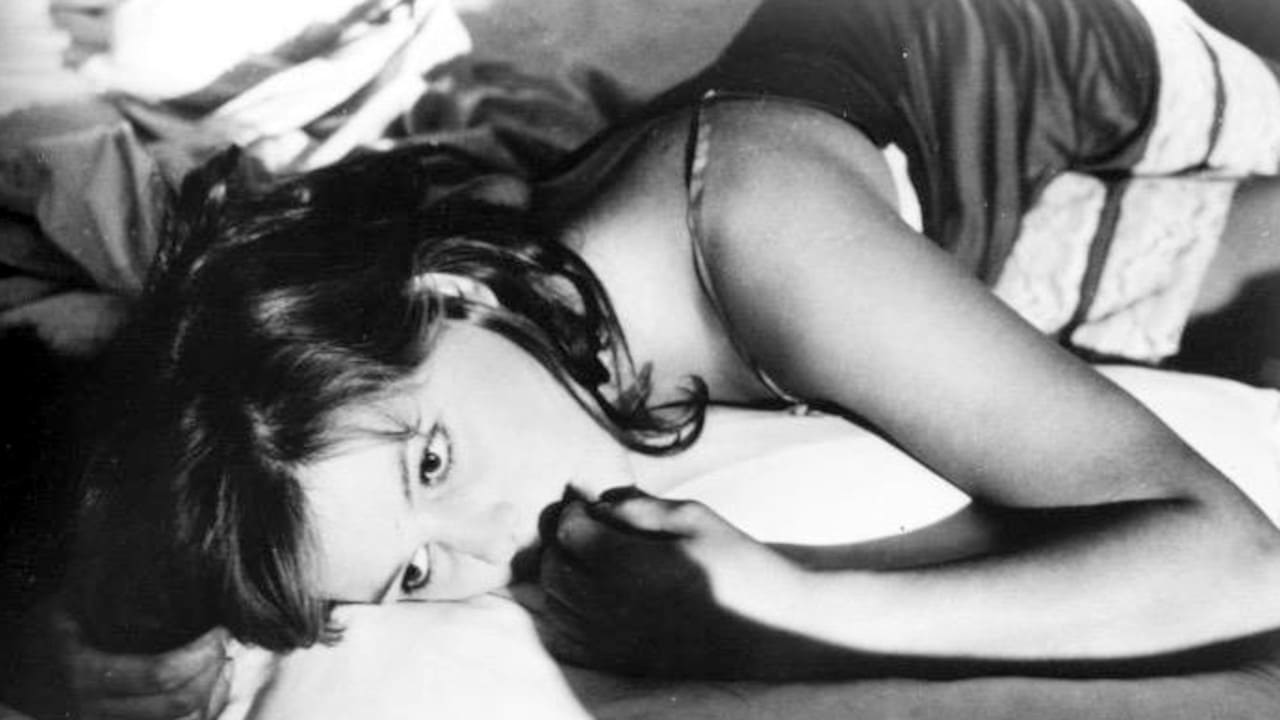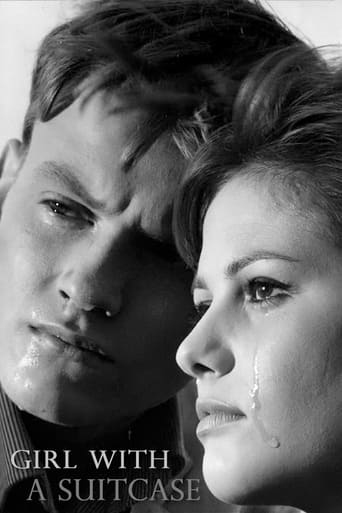

The subtle, probing camera of director Zurlini (with its admirable choice of camera angles and remarkably fluid camera movement), allied with the evocative, deceptively simple yet superbly skilled photography of Santoni, clothe this wistful and heart-tuggingly scored romantic drama with an appeal that is as immediate as the pretty pout of Claudia Cardinale's lips, and as attractive as the sun-shrouded locations of Parma and Riccione. Acting is fine throughout, and Claudia Cardinale's admirers need not be too upset by the English-dubbed version, as she doesn't speak her own lines in the Italian version either. The original running time is listed as 135 minutes, but I've never met anyone who has actually seen this version. IMDb lists 121 minutes, but the dubbed version I saw at a studio preview ran 115 minutes (which is still longer than the U.S. sub-titled version of around 110 minutes or the U.K. dubbed version of 96 minutes).
... View MoreI watched this together with Eastwood's "Million Dollar Baby." I knew I would be challenged by that film (you can read my comment), and I wanted something that I knew would be a safe island after the offenses therein.I chose this. Its between "Million" and "Nights of Cabiria" and more perfect than both in my view. The spine of this film is a story of a prostitute/dancer, an adventuress with few skills for the job. We see some encounters that provide insights, not into her character so much, but what limits her, and that matters because we discover many of those same limits in us.Its a good film, largely forgotten today because its merely competent and not showy or overtly experimental as so many from that block were. But if you want an antidote to those bad films of good men, come here.It has the economy of Eastwood, in fact this very tradition is where he learned his directorial craft. But its economy directed toward conveying the environment, the context in which our two characters find themselves. It's geared to the context not the actors, who after all can only tell you what is in themselves, not is what is in their world.It has the depressing rootlessness of those early Fellini films, but it emerges from the real world we see instead of being an overt essay on what we know is Fellini's perspective that starts from the very beginning. This emerges.Ted's Evaluation -- 3 of 3: Worth watching.
... View MoreI have news for you. Claudia, as beautiful as she is, is not the most beautiful person in this film. That would be Jacque Perrin. He was 19 when the film was made (his character is 16), and the camera lingers on him in scene after scene.The story is simple: Perrin's character falls for Claudia. She's an adult, he's not. She's poor, he's nobility.Perrin's understated performance is a dead-on portrait of adolescent longing. His eyes tell the whole story. It's difficult to imagine that any man could watch him without experiencing flashbacks to his own adolescence. He doesn't know whether to hope, or not, but he can't help hoping anyway. He doesn't know anything about adult courtship, so he improvises as he goes along. He's unfailingly, achingly, kind and polite (see first clause, previous sentence). He's brave, as he pushes against, and sometimes breaks, the rules that bind a young man not yet old enough to make his own rules.Claudia, meanwhile, also provides a deeply thought performance, as a young woman whose poverty constrains her every move. She wants some tiny measure of security-- her fear of of the very real possibility of being out on the streets in palpable. She has no way to reach safety without depending on a man, but men have been awful to her. And, she wants desperately not to cross the final line of degradation and become a whore. She'll take money, but only if she can satisfy herself that it is a gift-- that is, only if she can feel that she still has some measure of choice in what happens next. Several men, including Perrin, are trying to "help" her. We see her hesitate, and calculate, in almost every conversation: trying to decide if the safety offered is real, calculating what she will have to give up if she accepts. Claudia is not in glamor mode here: she is beautiful, and the men are swarming around her, but her clothes are cheap, and she's living out of her suitcase.This is a fine film, but it's not likely to be in anyone's top ten. I think most people will find it moving and well worth watching.Why not a GREAT film? I think this is not so much because of particular flaws of the film, as because of its modest dimensions. The film is not trying to make a grand statement. It delivers deeply felt and moving drama, and two completely believable and interesting characters. Enough for me. P.S.: On the dubbed version, the voicing is surprisingly good.
... View MoreZurlini introduces a familiar theme, a futile relationship with an older woman and a younger man, perfected in his later film `Violent Summer,' but here Aida, Claudia Cardinale, plays a nighclub singer who is jilted in the opening moments of the film and spends the rest of the film searching for a way out of the stereotypical relationship of a beautiful woman using, and being used by men, a dependent and unhealthy relationship. When Marcello, a cad who lives in a lavish estate, tells his 16 year old younger Lorenzo, Jacques Perrin, to get rid of the girl, the younger brother's interest turns from bewilderment to unbridled obsession, as the high-strung, free-spirited girl surprisingly is flattered by his attention and by her belief that he has money, contrasting the obvious class distinction between the two, he lives in a statue-filled estate with his family, she lives alone out of a suitcase in a hotel room. The adults in the film are overly stern and heartless, represented by the familiar Zurlini statues which can be seen throughout his entire body of work; this lifelessness is contrasted against the passion of youth. The relationship comes to a screeching halt with the intervention of the family priest who questions Aida's motives with such a young and impressionable boy, urging her to move on. This is a brilliant scene where they speak in what appears to be a museum construction area, broken statues lie about with other scattered debris as the priest tries to reconstruct the spiritual direction of the young lovers, urging them to go their separate ways. This leads Aida into the arms of another conniving man who attempts to seduce her with plenty of money and alcohol, but Lorenzo arrives, refuses to butt out, gets his butt kicked by the older man, which leads to this extraordinarily long, beautifully evolving scene on the beach where the two lovers are caught up in the mysteries of their own futility, a kind of existential despair, surrounded by the wonderment of nature. This film constantly shifts the focus on who is the victim and who is to blame, in the end there are no answers, just a continuous search.
... View More